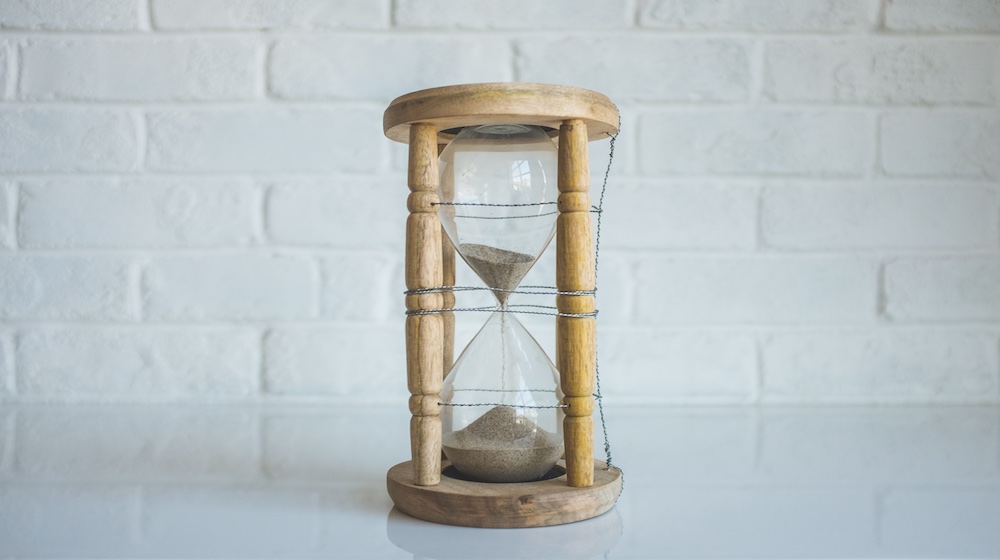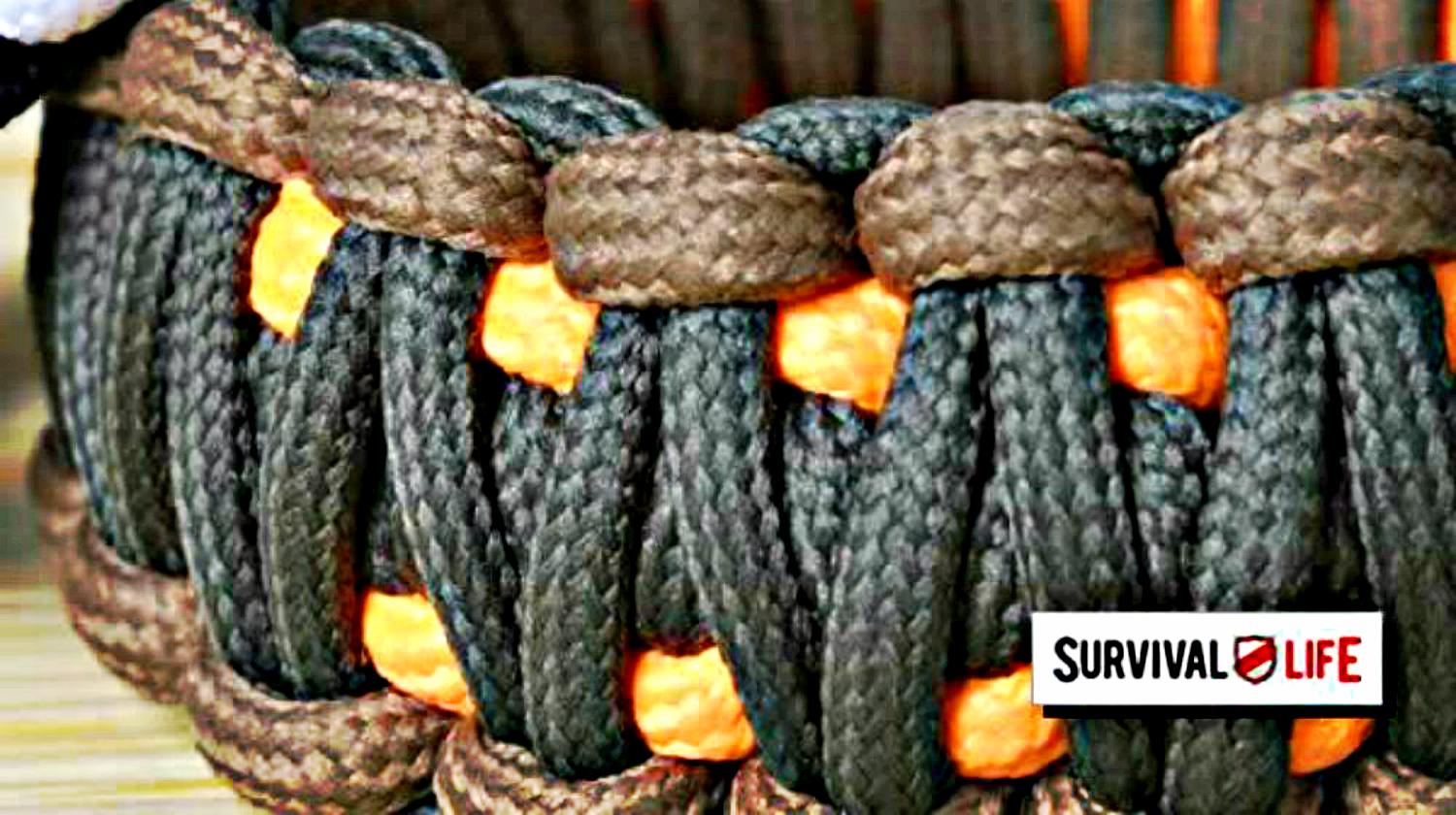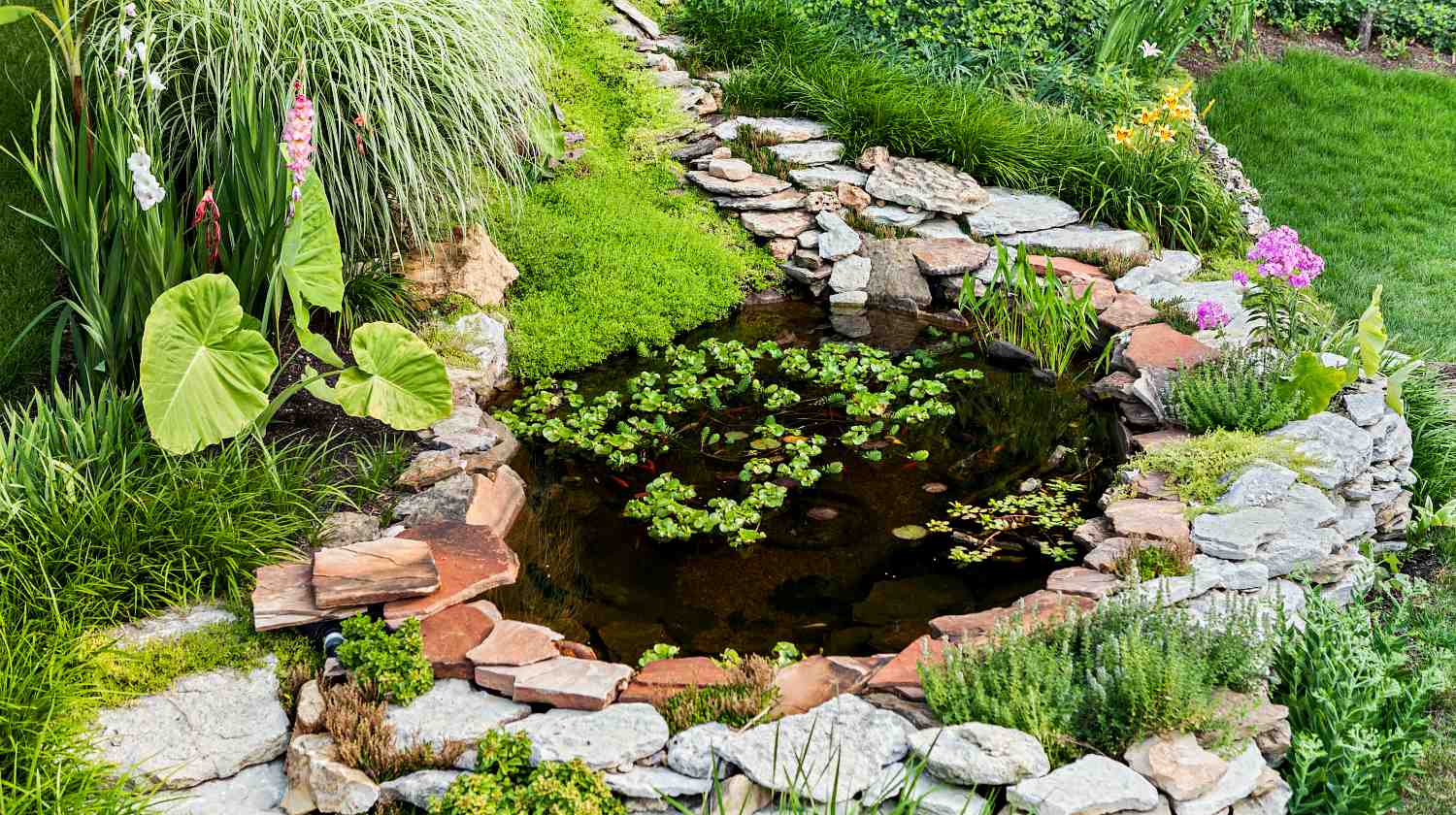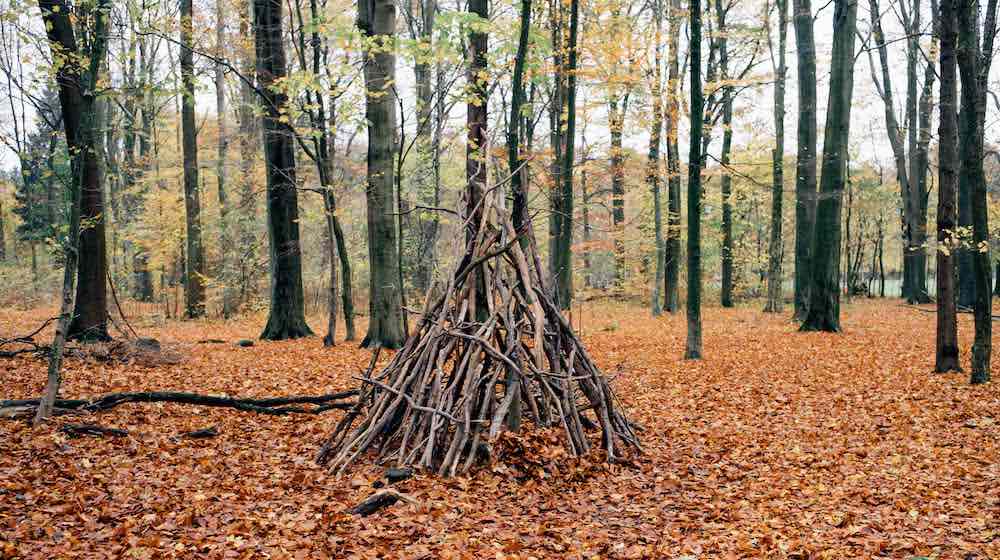Do It Yourself
26 Five Minute Prepping Projects

Have you ever asked anyone (including yourself) what they have done to prepare for a disaster, only to have them answer that “they just don't have the time?”
That's baloney and you know it!
You have time to stop and spend 10 minutes in line getting that overpriced coffee with a green straw, you have time to catch up on all of the episodes of American Idol that you missed during the week.
If you really want to be prepared you will make time for it.
But it doesn't have to be an all consuming project…
Gaye Levy has a short list of 5 minute Prepping Projects that you can do every day.
Check it out and make sure that you don't use the clock as an excuse not to be prepared:
One of the worst excuses used for not prepping is that it “takes a lot of time.”
True enough.
Anything that you pursue with passion and intensity is going to take some time. On the other hand, there are plenty of prepping activities that can be undertaken in just five minutes.
Come on. I said just five minutes. And five minutes a day over the course of a year? That 30 hours with a whole lot of prepping going on. Today I am sharing some preparedness projects that can be accomplished in just five minutes. So if you think you don’t have time to prep, think again.
Shall we start? Here are some 5 minute projects, listed in no particular order.
5 MINUTE PREPPING PROJECTS FOR PEOPLE WITH NO TIME
1. Purchase a prepping notebook or binder where you can accumulate information you need in the event of an emergency.
2. Wash out empty juice jugs, swish with a bit of bleach and fill them with water for an emergency. Be sure to date them so that you that you can rotate them on an annual basis.
3. Place a pair of shoes, socks, work gloves, a whistle, and a light stick or flashlight with batteries under your bed for use during or after an emergency.
4. Talk to family members about how you will re-unite with each other following a disaster.
5. Choose an out-of-state contact person that is willing to be a relay point for information after-the-fact to your other family members and loved ones. (Following a disaster, telephone lines to an out-of-state location may work when local calls do not.)
- Two pre-programmed, quality-tested handheld Ham radios
- Two antenna upgrades and AAA battery cases
- Two subscriptions to Ham Test Online — all you need to learn the material and get FCC licensed
6. Introduce yourself to a neighbor you have not met. Exchange emergency telephone numbers.
7. Purchase a manual can opener on your next visit to the store.
8. Fill empty milk jugs or other plastic containers with water and store them in your freezer. The frozen jugs will keep your food colder for longer in the event of a power outage. The water can also serve as a backup source for cleaning or sanitation purposes.
9. Read Food Safety When the Grid Goes Down and print out the food safety charts at the at the FoodSafety.gov website. Attach them to the inside of a cupboard door so you have them handy after a power outage or disaster.
10. Mark your calendar with a date one year from now so that you remember to rotate your canned goods out of storage.
11. Purchase extra canned goods each time you visit the grocery store.
12. Locate your utility shutoff valves and review the instructions for turning them off. Place a shut-off tool by the door nearest to them
13. Test your smoke alarms.
14. Make a list of all of your prescription drugs along with dosages and keep the list in your emergency kit.
15. Take digital photos of each room in your house. Take five minutes for each room and do you best to capture as much as you can. This will facilitate any after the fact insurance claims.
16. Write down your insurance policy numbers and your agent’s phone number, and put them in your wallet and in your emergency kit.
17. Add $1 a week to your emergency cash fund. If you can afford it, add $5 per week (or more) to the fund.
18. Make digital copies of your important documents and store them on a flash drive.
19. Make a backup copy of the data on your computer hard drive and give it to a friend or relative to store for you. In computer terms, this is called “off site backup”.
20. Locate a source of water outside of your home such as a lake, pond or stream.
21. Learn to cook a pot of rice.
22. Download free prepping, survival and homesteading for e-books from Amazon as they become available. Check the Backdoor Survival Facebook page for almost daily announcements of books that are currently available – often for just a day or two.
23. Call (800-480-2520) or email FEMA (fema-publications-warehouse@fema.gov) to order a free copy of their excellent print book “Are You Ready Guide to Preparedness”. For more information about this publication, see Free for You: The “Are You Ready Guide to Preparedness”.
24. Practice starting a fire using a bit of dryer lint, a cotton ball soaked in petroleum jelly or a flint and steel.
25. Sow some seeds, fruits and veggies that is.
26. Visit one of the websites in the article Special Report: The Best Prepper Websites.
View the original article here.
Can you think of any other quick prep projects that might have been left off of this list?
- New in Crate Never Been Issued! Genuine US Military Issue
- 50'L X 50'W X 10'-14'H / 2000sqft (per module) - Complexible
- Erection: 2 man / 1 hr per module
Four Prepper Projects to Try this Spring
36 Paracord Projects For Preppers
36 More Weekend Projects For Preppers
36 Prepping Projects You Can Start (And Finish) This Weekend
Last update on 2024-11-21 / Affiliate links / Images from Amazon Product Advertising API
-

 Paracord Projects1 year ago
Paracord Projects1 year agoParacord Projects | 36 Cool Paracord Ideas For Your Paracord Survival Projects
-

 Paracord Projects1 year ago
Paracord Projects1 year agoHow To Make Paracord Survival Bracelets | DIY Survival Prepping
-

 Medical Care1 year ago
Medical Care1 year ago21 Home Remedies For Toothache Pain Relief
-

 Knife Laws1 year ago
Knife Laws1 year agoAre Switchblades Legal? Knife Laws By State
-

 Do It Yourself1 year ago
Do It Yourself1 year agoSurvival DIY: How To Melt Aluminum Cans For Casting















Marilyn
June 3, 2013 at 8:49 AM
Great ideas! Thanks for posting.
Lucy
June 3, 2013 at 8:52 AM
Remember to have extra food on hand for your critters.
richard1941
June 3, 2013 at 9:48 AM
* Get a 250 watt inverter at Radio Shack
* Get a 50 ft extension cord
* Fill your gas tank and never let it get below 1/2.
* Buy all the catholic 7 day candles you can when they are $1 or less, even if you are like me and not exactly catholic.
of course, in an extended grid failure, you don’t want to advertise that you have a little power, so blackout curtains might be a good idea.
richard1941
June 3, 2013 at 9:57 AM
Also, FEMA and other agencies tell you to have an AM-FM-Weather Band radio. Take that extra step that will allow you unfiltered knowledge about what is going on:
* Get a police scanner radio. (Government agencies discourage this!)
* Get a way to keep things charged when no other power is available (small solar panel)
* Get a set of jumper cables and keep them in your car at all times.
These generally cover AM, FM, and Weather Band, so you don’t need any other radio.
Rick Rosado
June 3, 2013 at 3:52 PM
i did not see anything that should be the most important . GUNS and Ammo . you,ll have to protect yourself , family and your prep .
Al
June 3, 2013 at 11:25 PM
Things to assist in hygiene when water does not run or is limited:
(These all have multiple uses too)
Baby Wipes
Hand Sanitizer
Bathroom Tissue
Facial Tissue
Feminine hygiene products
Anarkie
June 4, 2013 at 8:50 AM
Alot of great ideas thanks for sharing will be doing the same
Eric Rearden
June 4, 2013 at 12:49 PM
Invest in inexpensive pollen masks and more expensive reusable masks. Then wear each one for several hours so you know you have a good fit and each family member has his/her own. The less expensive ones can be left in bug out bags, suitcases, vehicle, place of employment for quick acquisition. The 2nd type are full-face masks with canister filters, which is also something that could literally be a lifesaver.
Pauline Boytim
June 4, 2013 at 6:52 PM
Re item 5: Keep name and phone number of this person beside your telephone, as well as give it to each family member.
Johnny Geetar
June 6, 2013 at 7:53 AM
Toilet paper, pet food, feminine hygeine products, alternate showering methods, and a viable alternative toilet. Trust me; if the folks around you are miserable, so shall YOU be…… Family morale will go to hell quickly if lacking these things. Food, water and firearms are a given, but asking your wife and teen daughters to head to the woods and handing em last week’s newspaper WILL turn your little world to crap in a real hurry.
Ditto in a protracted emergency, and you’ve stocked NO food for your pets and you’re faced with the specter of cutting em loose or worse, cuz you cannot feed em. You become the instant jackass even if it was the right thing to do to maximize your food storage for the family.
Rosanne Runfola
October 20, 2013 at 11:19 AM
My local Ocean State Job Lot had Haz Mat yellow suits on sale for three dollars. I purchased one thinking that at least it will give me coverage from rain. I got a large size so it would fit over heavier clothing in winter. They also had heavy Haz Mat boots but they were all too large for me.
mike
October 29, 2013 at 8:34 AM
regarding #2. you can reuse juice and milk jugs for the purpose of storing water correct? I was told containers like this will leach a chemical into the water making it undrinkable. is this true? can the water be saved for sanitation purposes in these containers? any help would be appreciated. thanks
Stephen
March 22, 2014 at 2:52 PM
Milk and juice containers leave bacteria causing enzymes that can cause water stored in them to grow bacteria. It is fine to use them for water storage for sanitation uses. 2 liter soda bottles are good for storing water for drinking, just clean them well with a little bleach before filling and storing.
Christian
March 4, 2018 at 10:21 AM
Get a portable camping toilet. One unit with a tank, and another unit that’s basically a lid on a foldable stand for storage and grab and go reasons, (be sure to keep a reliable, small digging shovel with this one).
prsmith
March 4, 2018 at 2:56 PM
You touched on water but they are short term.
— Learn how to build a raw water filter using rags, grass, gravel and carbon from your campfire.
— Learn two or three ways to purify the filtered water (NEVER DRINK IT WITHOUT PURIFICATION!, hint: boiling and swimming pool shock)
prsmith
March 4, 2018 at 3:36 PM
Learn to build Hobo and Rocket Stoves and learn to cook on them. A bit more than five minutes but worth the time.